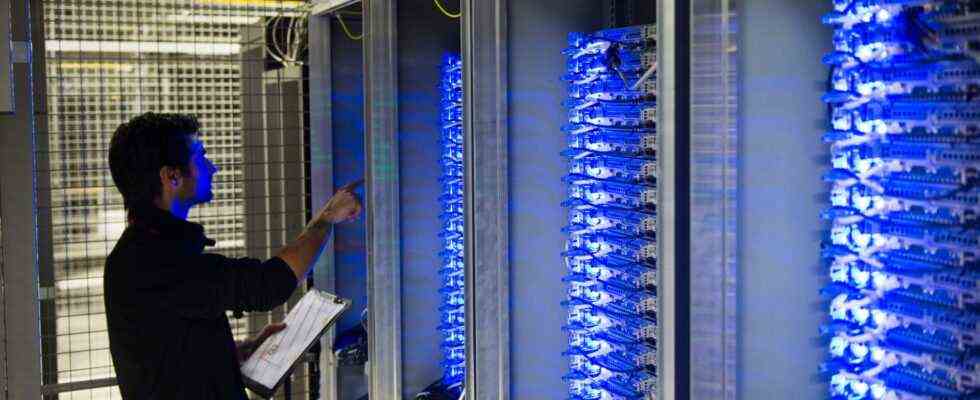Status: 07/06/2021 11:47 a.m.
More and more data, but also more and more energy: A good year ago, Minister Schulze presented her environmental policy digital agenda. The Left Party asked – and is horrified.
From Christian Feld,
ARD capital studio
The conclusion could not be harder: When it comes to digitization and sustainability, the federal government is “not only completely ambitious, but also literally clueless”, judges the digital-political spokeswoman for the left-wing parliamentary group Anke Domscheit-Berg in an interview ARD capital studio. Together with Lorenz Gösta Beutin, the parliamentary group’s climate policy spokesman, she had sent the federal government a comprehensive catalog of questions.
Climate protection and digitization: There are two future topics that cannot be separated, because digital progress with all its positive sides also needs a lot of energy. Problem recognized – Federal Environment Minister Svenja Schulze probably wanted to send this signal in March 2020 when she presented her environmental policy digital agenda.
In the accompanying brochure, one of the objectives is formulated: “With a register for data centers, the energy consumption of the digital infrastructure should be better controlled and reduced.” The Federal Government now writes that the register will be drawn up as part of the energy research plan: “The research project is currently in the tendering process.” That doesn’t sound like it will be implemented soon.
81 pages and many tables
What is the federal government doing where it is responsible – with the federal IT infrastructure, especially the data centers? The federal government provided 81 pages including many tables. But printed matter 19/31210 leaves at least question marks.
How many data centers do the Federal Ministry of Economics and its subordinate authorities operate? In an overview of all departments it says: ten. In Appendix 1.1 on energy consumption, the BMWi suddenly lists 27.
“Very complex systems”
From Domscheit-Berg’s point of view, this is just one example of their accusation that the federal government cannot even provide an overview of the current situation: “The extent of ignorance of the status quo in terms of the climate balance of federal IT is terrifying.”
The government is not planning any mandatory limits on how energy-efficient data centers must at least be. These are “very complex systems” that are “not accessible to any simple regulation”. However, a voluntary energy label for data centers is to be developed, which should make comparability possible.
What does the federal government know about its own data centers? In many tables there is often the entry kA, i.e. no specification. Take energy consumption as an example: the government cannot or does not want to provide a figure for a significant number of data centers.
Climate-damaging refrigerants
But not only the energy requirement plays a role in sustainability. In the data centers of the federal government, so it is said in the answer, refrigerants are still predominantly used, which are “very harmful to the climate due to their high global warming potential”. According to an evaluation by the left-wing politician Domscheit-Berg, this applies to 79 percent of the data centers that provided information at all. Only very few planned a retrofit. The federal government emphasizes that the restriction of such substances has already been decided by an EU regulation and that their use is declining. Another point of criticism: Only a fraction of the data centers would use their own waste heat.
The bottom line is that the left-wing spokeswoman for digital politics accuses the federal government of exacerbating the climate crisis by doing nothing. A “comprehensive and transparent ecological balance sheet” is needed as the basis for a plan that is to be implemented by all ministries. “Among other things, this plan must stipulate binding minimum efficiency criteria, environmentally friendly refrigeration technology and 100 percent electricity from renewable energies,” said Domscheit-Berg zum ARD capital studio.

